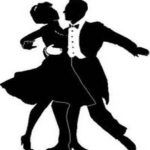 “I can get no remedy against this consumption of the purse; borrowing only lingers and lingers it out, but the disease is incurable.” (KHIV.p2.1.2)
“I can get no remedy against this consumption of the purse; borrowing only lingers and lingers it out, but the disease is incurable.” (KHIV.p2.1.2)
Tip for Use. Often employers temporize on giving you a raise and wait when you will gather enough gumption to broach the subject. Even so, they may ask you why do you need a raise in an effort to dampen your spirits or humiliate you. Isn’t it obvious why anyone needs a raise? You could answer as he/she expects, e.g. mounting bills, long time before the last raise etc. But this would be falling into the verbal trap he has laid for you. Remember this quote instead and if your counterpart cannot laugh or at least smile at your answer, then you have a problem and maybe you could start looking for another job. The character totally lacks a sense of humor, an unfortunate occurrence in many corporations.
In the book “Your Daily Shakespeare” you will find many quotes dealing with office or work situations.
… In a different situation use the first part of the quotation, ‘I can get no remedy from this consumption of the purse’ when, for example, you find yourself temporarily out of cash for whatever reason and must ask your date to pay, with the idea of refunding her later for the borrowed amount. She may interpret your line as a witty explanation of why you have to ask her for the small loan required for the immediate necessity to pay a bill.
Should you have a female boss and you notice that she likes you (in “Your Daily Shakespeare” see ‘Body, b. language’), use the sentence in its entirety when the subject is your salary, a prospective raise or similar, as explained in the first part of the sentence.
Continuing with extracting from “Your Daily Shakespeare”.
Sometimes the stark reality of economics contrasts with the tender airiness of love. In 1697 John Hervey, First Earl of Bristol, fondly writes to his wife Elizabeth from Newmarket, ‘My ever-new delight, Knowing how kind a welcome all my scribbles meet with where they are addressed, neither heart nor hand can forbear, when any opportunity offers, to tell thee how much I long to be in the place of this my harbinger…for all time is worse than lost that’s spent where thou art not… ‘Tis you alone that sweetens life, and makes one wish the wings of time were clipt…’
But Elizabeth, in writing back from Bury, while acknowledging her love for her husband has pressing financial matters to deal with.
‘My dear dear love, Ye hundred things I had to say when you left me, must be only to repeat how much and dearly I love you….
Though I could dwell for ever on this subject (i.e. love), yet I am sure you would be angry with me if I did not tell ye wants those bills you left me to pay has put me in more distress then I thought possible; but 20 pounds will effectually do my bisness, (spelling original) which sum, if it is not easy for you to send, a note from Mr. Cook to receive it at London will do as well; for he can let me have that or any other sum I want; but I shall need no more.’
By the way the spelling is original — See also ‘Budget deficit – coffers sound with hollow poverty and emptiness’.
In the play. Falstaff’s bleak assessment of his own finances.
Do you wish to remember this quote by heart? See mnemonic #2 in the Mnemonic Frames Page.
 “It is the bright day that brings forth the adder;
“It is the bright day that brings forth the adder;








